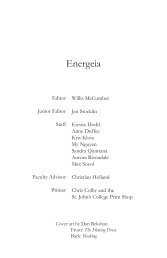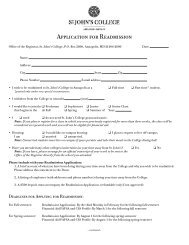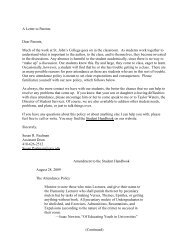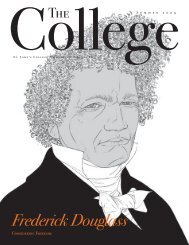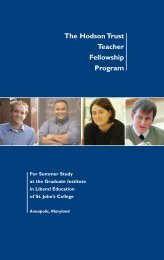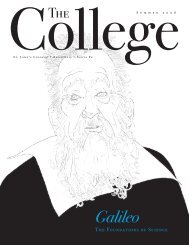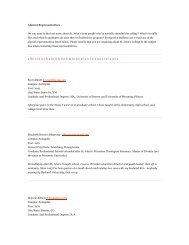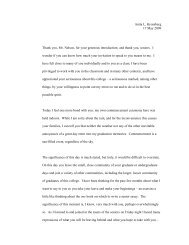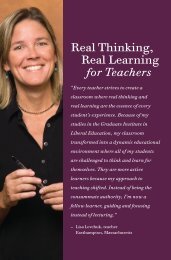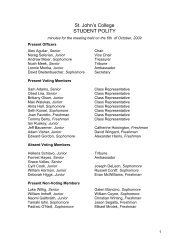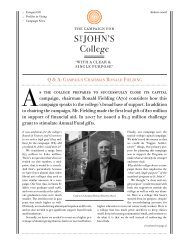âTo Meet with Macbeth,â given by tutor Louis ... - St. John's College
âTo Meet with Macbeth,â given by tutor Louis ... - St. John's College
âTo Meet with Macbeth,â given by tutor Louis ... - St. John's College
Create successful ePaper yourself
Turn your PDF publications into a flip-book with our unique Google optimized e-Paper software.
<strong>Macbeth</strong>, his immediate desires postponed, tries not to let the Lady have the last word. But she<br />
will end this scene her way:<br />
<strong>Macbeth</strong>.<br />
We will speak further.<br />
Lady <strong>Macbeth</strong>.<br />
Only look up clear.<br />
To alter favor ever is to fear.<br />
Leave all the rest to me.<br />
Exit.<br />
(I.v.72-74)<br />
<strong>Macbeth</strong> alters his expression as he looks down into his desires and sees the mix of fair and foul that<br />
warrants later conversation. Lady <strong>Macbeth</strong> would not have him exit unclear, <strong>with</strong> fear to take what he<br />
desires, namely her as his “dearest partner of greatness.” Thus she supplies a final line of promise that<br />
ends on the word “me”—unrhymed, single, for the birth of their self-belonging is to be her labor.<br />
The actual murder of Duncan will be <strong>Macbeth</strong>’s to perform, but the deeper truth about this<br />
labor is now apparent. By means of his far-seeing, all-hailing letter, <strong>Macbeth</strong> prepares his Lady <strong>with</strong><br />
promises of greatness to prepare herself for the King’s coming <strong>by</strong> unsexing herself in order to prepare<br />
<strong>Macbeth</strong>, her homecoming lover, to prepare himself as the serpent in the flower to provide for Duncan<br />
a sunless tomorrow. Only then will he take his desire as the husband of her bed. Who inseminates<br />
whom? Whose labor is this birth of murder? It is impossible to separate the two of them. Their union<br />
could even be mistaken as the Biblical ideal of man and woman becoming one flesh in marriage. How<br />
shocking to our sensibilities to recognize in them our own practiced ways of moving our spouses to<br />
move ourselves to enact our desires. 7<br />
Their mutual motions reach deeper levels in the next meeting.<br />
7 <strong>Macbeth</strong> and Lady <strong>Macbeth</strong> never engage in mutual blame or recrimination after the deed. It would be pleasing<br />
to say that we are like them in that respect, but blaming someone else is as original and common as sin. This is<br />
what the first man and woman do when God catches them transgressing His one command. Yet this common<br />
human practice is not <strong>Macbeth</strong> or his Lady’s way of sin.<br />
19




